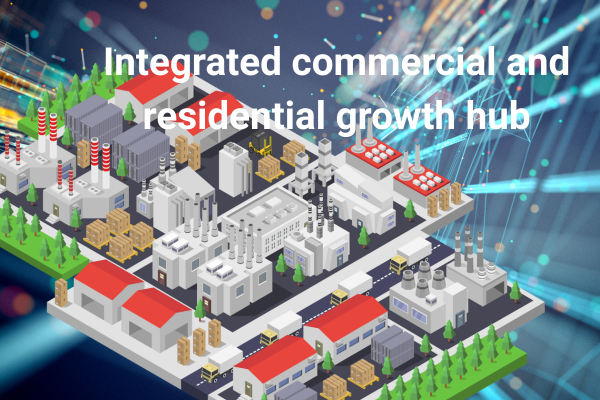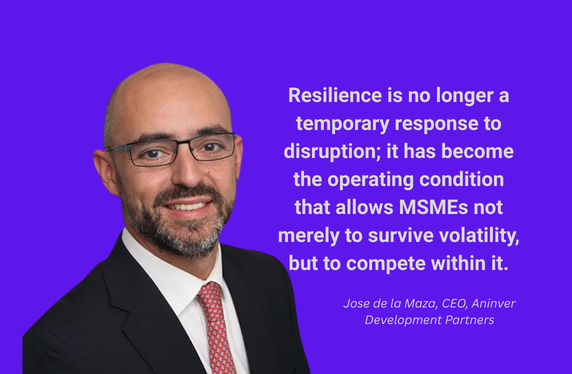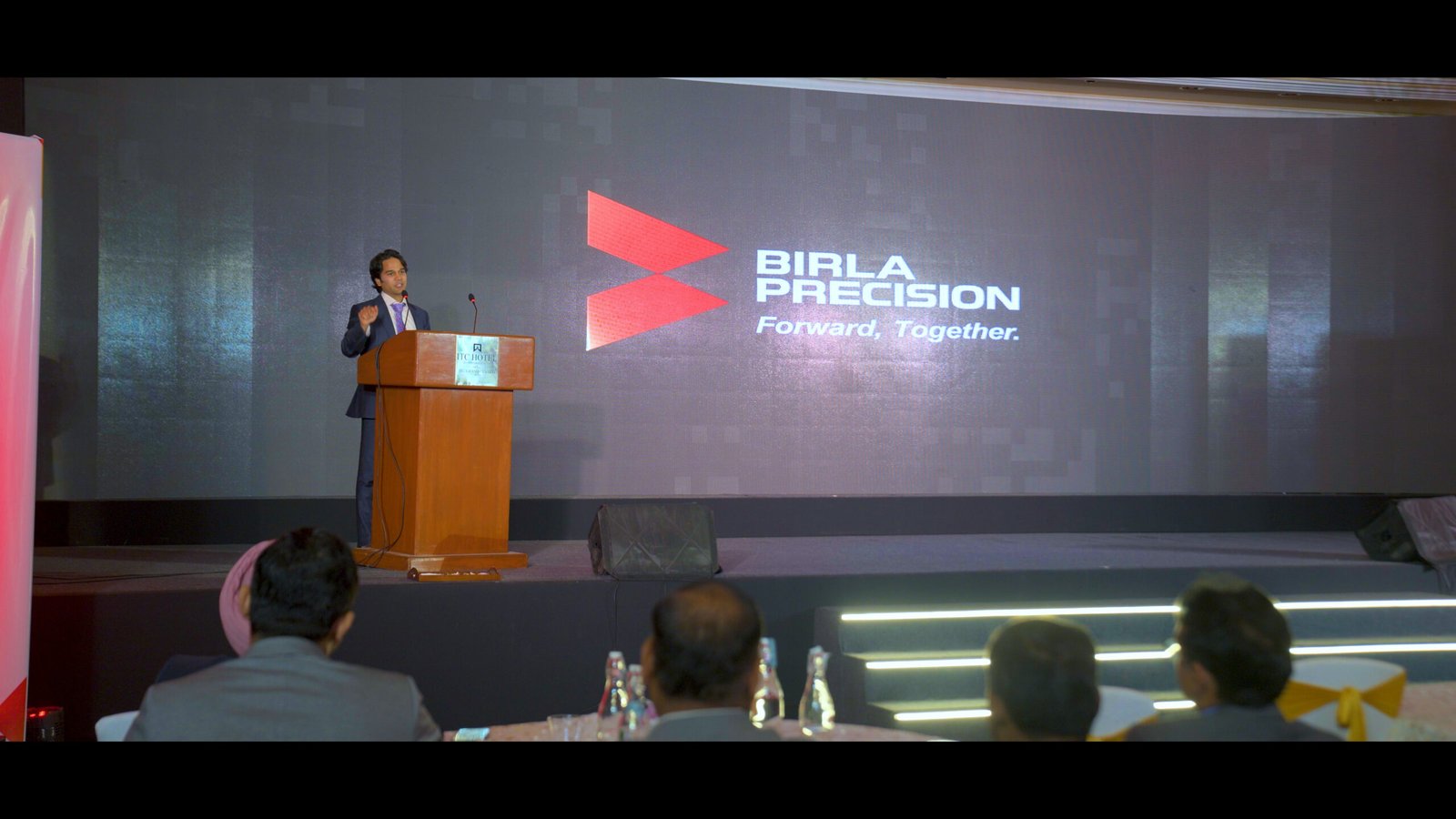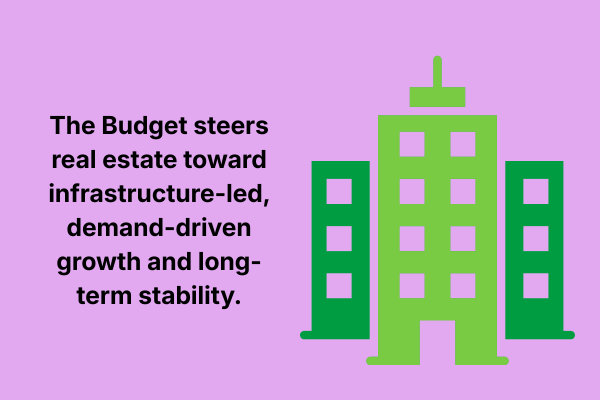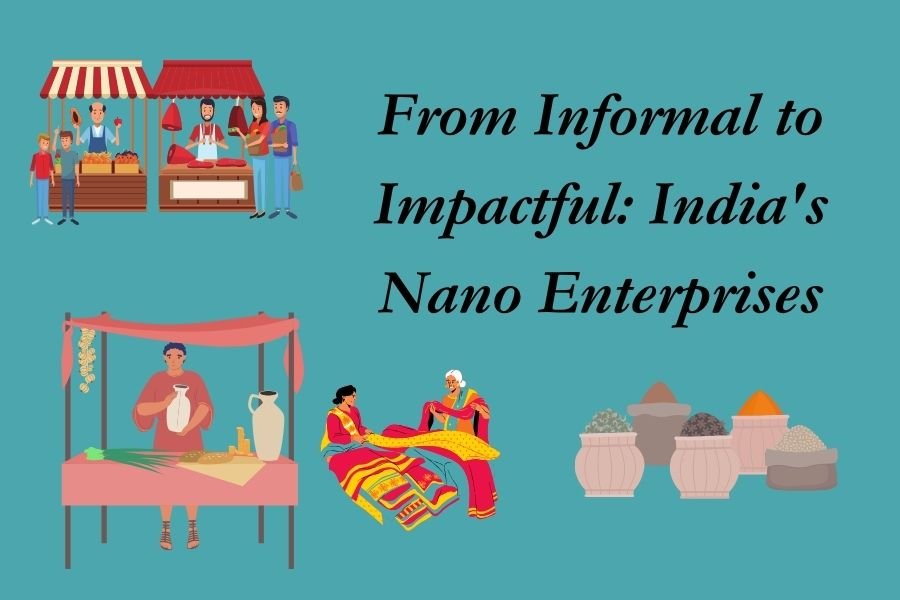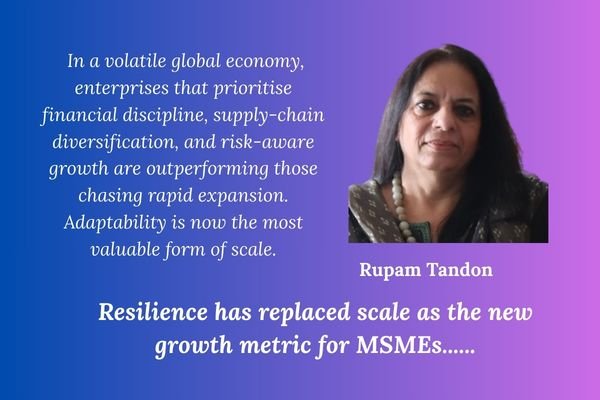Shankar's small eatery was more than just a business—it was a lifeline, a testament to the millions of informal enterprises quietly fueling India. This piece uncovers the overlooked world of nano businesses and Informal Micro Enterprises (IMEs), revealing their immense importance, the systemic hurdles they face, and how recent reforms are providing a much-needed path to formal credit and sustained growth.
Near our house stood a modest little eatery called Ambika Hotel. My father would often take me there during my school days. The place was rundown, but its benches and chairs were sturdy enough to enjoy a sip of tea. All through these years, the owner, Shankar, always held his head high, his consistent grin reflecting the steady business in the town. The delicacies at his eatery were liked by both children and elders, making his hotel constantly occupied—a quiet toast to the satisfaction he drew from his work.
But this success didn’t last. When the COVID-19 crisis struck, it was as if the stars had misaligned—not just for Shankar’s business, but for countless others like it. His small restaurant, once bustling with life, suffered devastating losses and eventually shut down. With no support from banks or lenders, Shankar abandoned the hope of reopening. His story is just one among many—stories of small businesses that collapsed under the weight of uncertainty, shifting geopolitical realities, climate challenges, and systemic neglect.
But how do we even categorize such businesses? While government schemes and policies often cater to MSMEs and larger industries, these smaller, grassroots enterprises remain largely invisible. Why is it that when support is extended—through financial aid or institutional schemes—it rarely reaches these tiny businesses? Why do public and private lenders turn a blind eye when these entrepreneurs knock on their doors for help?
These are Nano-Businesses and Informal Micro Enterprises (IMEs) a subset of Micro Enterprises.
Here is a glimpse on about their Importance, Nature of Businesses and Challenges faced by them:
Nature of these Businesses
- Survivalist in Nature: These businesses often exist to meet daily sustenance, not scale.
- Flexible & Agile: They can quickly adapt to local demand, weather, or social changes.
- Self-Employment Engines: Crucial for livelihood in both rural and urban poor communities.
- Shock Absorbers: Act as safety nets during job loss or migration (e.g., COVID-19 pandemic led to a boom in such informal setups).
- Unrecognized Potential: Despite their number, they are excluded from formal government benefits (credit, training, digital support).
- Socially Rooted: Deeply connected to local culture and demand, often thriving on trust-based networks.
Challenges Faced
- Lack of access to credit or insurance.
- No business records, making them ineligible for formal programs.
- Poor infrastructure, limited power/water access.
- Vulnerability to market shocks or regulatory eviction (e.g., street vendors).
- Digital divide, low financial literacy.
- Absence of skilling or business development support.
Why They Matter
- Over 60 million informal enterprises in India, employing ~90% of workforce.
- Bridge gap between unemployment and opportunity.
- Can be the bedrock for formal MSME transition if supported well.
- Important for women-led enterprises and migrant entrepreneurship
Micro v/s Nano V/s IME, how they differ from each other:
| Category | Micro Enterprises | Nano Businesses | Informal Micro Enterprises (IMEs) |
| Definition | Small businesses as per MSME classification with investments and turnover within notified limits | Extremely small, often individual or family-run businesses with minimal investment | Micro businesses operating outside the formal economy |
| Typical Size | Up to 10 employees | 1–3 individuals (often solo-run) | Up to 10 people, often includes unpaid family labour |
| Annual Turnover | Up to ₹5 crore | Typically, below ₹5 lakh | Typically, below ₹10 lakh |
| Registration Status | Registered under Udyam / GST / Shops Act | Usually unregistered | Not registered under any statutory act |
| Examples | Small manufacturers, service providers, local processing units | Tea stalls, cobblers, mobile vendors, tailors | Street vendors, Kirana stores, mechanics, home-run units |
| Nature of Operation | Structured, may have accounting records | Informal, cash-based, day-to-day survival focused | Unstructured, informal, trust-based customer relations |
| Digital Presence | May have bank account, UPI, GST | Mostly offline, minimal digital interface | Growing use of digital tools via schemes like PM SVANidhi |
| Access to Finance | Moderate to good (based on records, GST etc.) | Very limited – lack of credit history, collateral | Limited access, improving with Udyam Assist Platform |
| Policy Support | Covered under most MSME schemes | New support emerging (e.g., PIDF, UAP) | Recently included under schemes like UAP, PM SVANidhi |
| Role in Economy | Backbone of formal MSME economy | Key source of grassroots self-employment | Critical for urban poor, women, and migrant entrepreneurs |
Way Forward:
Recognizing the struggles of Nano businesses and IMEs—often left unheard, unsupported, and undocumented—the Government of India has initiated targeted reforms to help them grow with ease, dignity, and financial independence.
Through the Ministry of Micro, Small and Medium Enterprises (MSME), a range of policy interventions have been launched to address their most pressing barrier: access to formal credit. These initiatives tackle both demand and supply-side constraints and aim to formally integrate these enterprises into India’s economic fabric.
Foundational Reforms for IMEs:
- Udyam Assist Platform (UAP) was launched by the Ministry of Micro, Small and Medium Enterprises in January 2023 to facilitate registration of IMEs, who are exempted from filing returns under provisions of the CGST Act.
- Since the launch of UAP, more than 2.2 crore enterprises have registered, with an employment of more than 2.6 crore.
- UAP provides an interface to Designated Agencies, which can be Scheduled Commercial Banks, Micro Finance Institutions, NBFCs, etc. to register consent-based data of their IME customers in bulk.
- IMEs beneficiaries of Government programmes like PM SVANidhi (The PM Street Vendor s AtmaNirbhar Nidhi (PM SVANidhi) scheme was launched in June,2020 amid the pandemic, is a micro-credit facility that provides street vendors a collateral-free loan) are also on board with UAP.
Impact:
Till date, PM SVANidhi has disbursed around 70 lakh loans across three tranches, benefiting over 53 lakh street vendors, and mobilizing credit worth ₹9,100 crore+—highlighting its pivotal role in empowering informal entrepreneurs in urban India.
Artisan Empowerment Through PM Vishwakarma:
- Launched in September 2023, the PM Vishwakarma Scheme is designed to support artisans and craftspeople across 18 traditional trades, offering end-to-end entrepreneurship support
- The Scheme components include recognition through
- PM Vishwakarma Certificate and ID Card
- Skill Up-gradation,
- Toolkit Incentive,
- Collateral-free Loans at 5% rate of interest
- Incentive for Digital Transactions and Marketing Support.
- Essentially, it encompasses all forms of support with the aim to meet the aspirations of Vishwakarma’s, who have entrepreneurial skills necessary to establish self-sustaining businesses.
- Effectively, the Government has paved the way for identifying entities that have the capacity, but were lacking access and institutional support to scale into formal MSMEs.
Provisions Specifically for Nano Businesses
- A challenge for Nano entrepreneurs, who are new to credit or have no credit or business history, is access to finance. No credit history deters banks from lending.
- To address this, the government and RBI have taken coordinated steps by issuing UAP Certificates which are now recognized on par with Udyam Registration for accessing Priority Sector Lending (PSL) benefits.
- Through initiatives like the Payments Infrastructure Development Fund (PIDF) Scheme notified by RBI for beneficiaries of schemes such as PM SVANidhi, PM Vishwakarma, etc., the number of acceptance devices have increased multi-fold in the country, developing the payment acceptance infrastructure in Tier-3 to Tier-6 centres, lowering the cost of transactions and increasing acceptability of small businesses.
{Take the case of Rukmini, a home-based tailor from a Tier-4 town. With the help of a private bank, she got registered under the Payments Infrastructure Development Fund (PIDF) scheme.
What was once a modest tailoring setup relying solely on cash payments is now a growing micro-business. Rukmini now accepts digital payments and supplies school uniforms to clients across two districts. Her journey reflects how access to the right tools and platforms can transform informal, home-based work into a viable, expanding enterprise}
- PIDF provisions encourage Digital Payment Aggregators to provide subsidized digital payment devices and QR Codes to Nano enterprises. In addition to subsidising deployment of physical or digital devices, Aadhaar-enabled biometric scanner devices for acceptance through BHIM Aadhaar Pay are also subsidised.
- Such supplementary digitization and digital trails will make them more discernible, supporting alternative credit assessment models based on data collected and increase credit disbursement for them.
New Credit Guarantee Support for IMEs
Special dispensation for IMEs under Credit Guarantee Scheme, was announced in February 2024, with liberal terms, which includes:
- Enhanced guarantee coverage of 85% of loan amounts of up-to Rs. 20 lakhs.
- Lower annual guarantee fees of
- 0.37% for loans up-to Rs. 10 lakh and
- 0.45% for loans between Rs. 10 lakh and Rs. 20 lakhs.
Nano and IME businesses may be small in scale, but their impact is profound. They sustain millions, preserve local traditions, and serve as the first rung of economic mobility for many. As India accelerates toward becoming a $5 trillion economy, inclusive growth cannot ignore the informal and invisible. With the right support—credit access, digital tools, and policy recognition—these enterprises can transition from survival to sustainability. Empowering them is not just about equity; but a strategic investment in inclusive growth, sustainable development, and a future where every small dream finds a fair chance to thrive.
Author Profile
-
Certified Independent Director and Mining Professional, Sandeep R Manakeshwar brings over two decades of expertise in sustainable growth across the mining sector, MSMEs, and the start-up ecosystem. He offers strategic leadership in ESG transformation, stakeholder engagement, and corporate governance. With a strong background in corporate communications, policy advocacy, and digital integration, he aligns business performance with long-term sustainability goals. Actively engaged in CSR and community development, Sandeep is also a prolific writer and speaker on governance, climate resilience, and innovation.
Can be reached at: sandeep.document87@gmail.com
